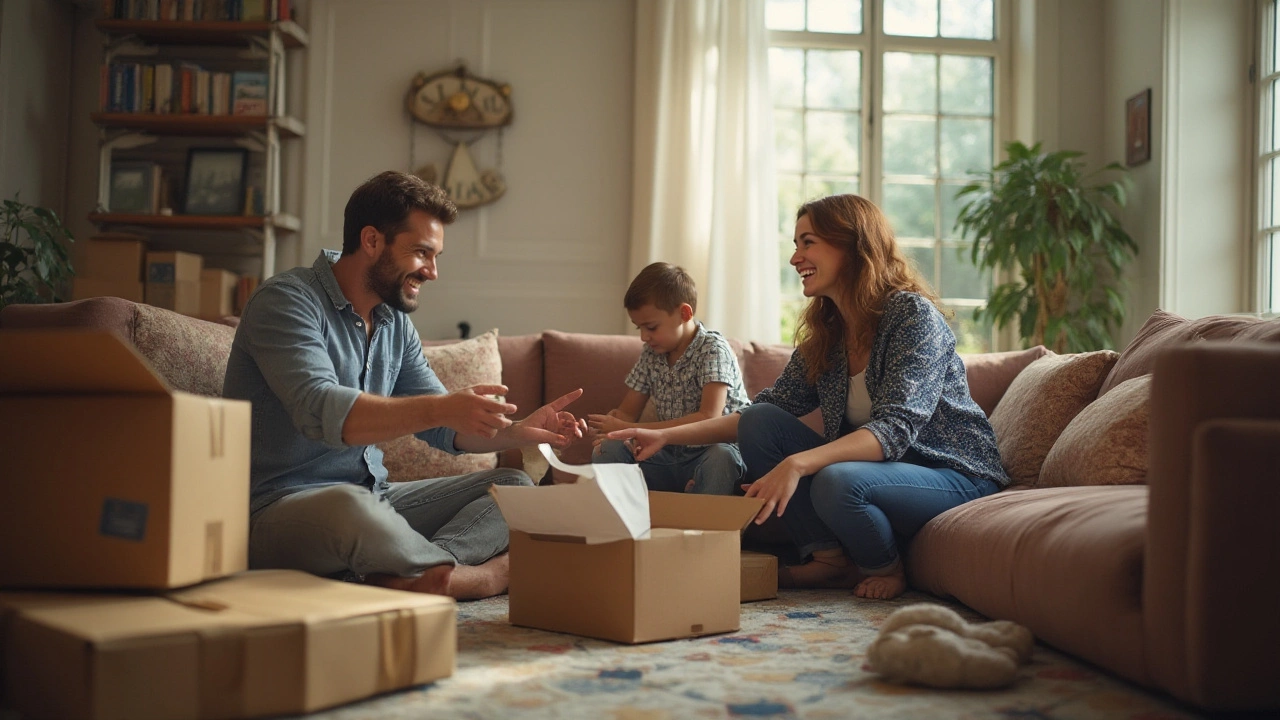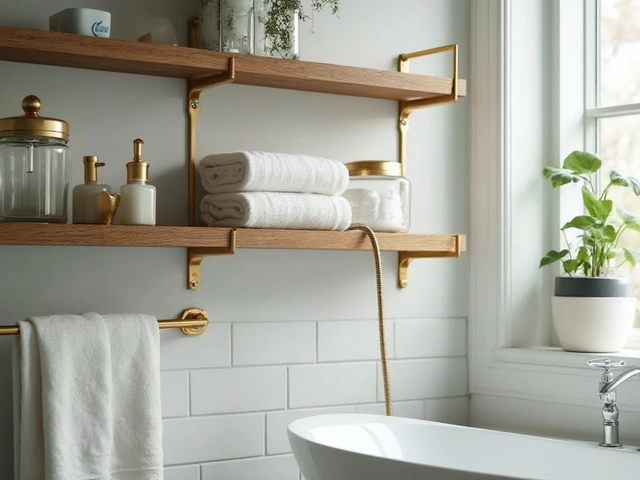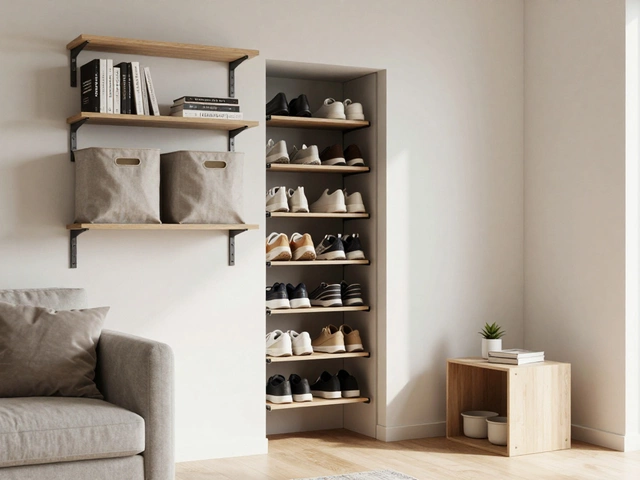As cities become denser and living spaces shrink, many people are facing a challenge that is seldom addressed—a lack of storage. The age-old battle to organize possessions in limited room is prompting individuals to look beyond their homes for solutions. The rise of self-storage facilities is a testament to this growing need, but is the investment worthwhile?
In modern times, owning a few extra square feet to pack away seasonal items, sentimental keepsakes, or even business inventory is appealing. However, the question remains: does the cost align with the benefits? Here, we dive into both sides of the debate, sharing insights from industry insiders and everyday users alike.
While for some, the decision is purely financial, others consider the convenience and flexibility it brings. So, how do you decide if paying for storage is right for you? Let’s explore the considerations that can help you determine the true value of renting storage units.
- The Growing Need for Extra Space
- Weighing Costs and Benefits
- Practical Uses of Storage Units
- Maximizing Value from Storage Rentals
The Growing Need for Extra Space
In recent years, the demand for additional storage has surged dramatically. With changing lifestyles and the rise of consumerism, many people are finding their homes bursting at the seams. The trend towards smaller living spaces—think tiny homes, studio apartments, and shared accommodations—means we have less room to house our possessions. As people accumulate more belongings, the logical solution for many has been to turn to storage solutions that extend beyond the walls of the home.
This rise is not just anecdotal. According to industry reports, the self-storage industry in the US alone has seen a robust growth, with over 50,000 facilities nationwide, a figure that's been climbing steadily year over year. The Self Storage Association notes that nearly one in ten households currently leases a storage unit, indicating that the storage unit has become as ubiquitous as the garage or attic of the past.
People use storage for a variety of reasons. For some, it's a temporary measure during transitional phases such as moving homes or renovating. Others might use a unit to store seasonal items like holiday decorations or bulky winter sports gear. These options offer a semblance of organization in an often cluttered life. A quote from the CEO of a leading storage company captures this sentiment, "In our fast-paced world, having an extra closet, albeit rented, can provide immense peace of mind."
Moreover, the digital age's blend with minimalism plays its part too. Fewer physical bookshelves, CD racks, or paper archives suggest less clutter at home but often lead to scattered, forgotten boxes of memorabilia. Renting storage units offers a way to keep items that bear emotional value without sacrificing everyday convenience at home. As life moves increasingly online, offline accumulation still demands space.
In fact, a surprising number of businesses, from online startups to established local shops, utilize self-storage units as efficient and affordable extensions to their physical footprint. These units can serve as inventory stores, archival spaces, or holding areas for unused office equipment. By leveraging storage units, businesses can scale up or down without the constant worry of real estate constraints.
Understanding the nuanced reasons behind the increasing need for more space helps us make informed choices about managing our own personal or business inventory. Whether for reasons of economy, convenience, or practicality, the decision to rent storage persists as a necessary consideration in our modern lives. With these insights, individuals and businesses can better evaluate their own storage needs and see if they align with what’s available.
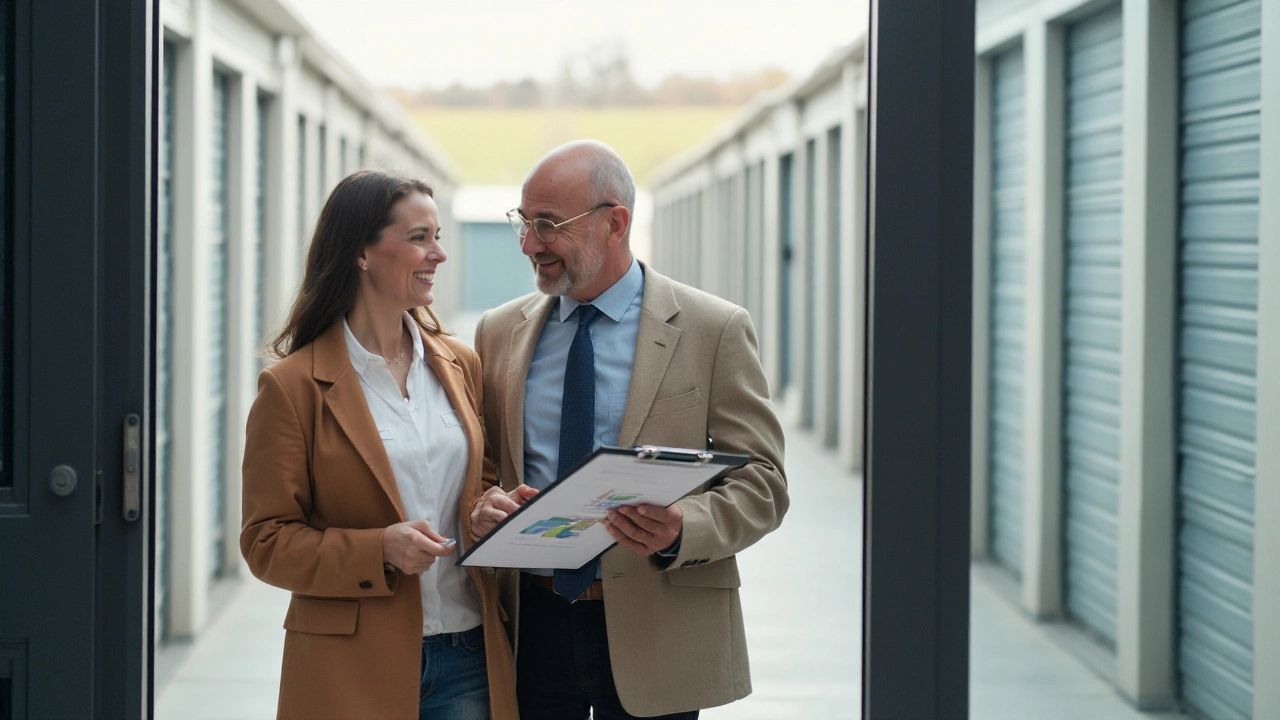
Weighing Costs and Benefits
When considering the option of renting storage units, it's crucial to assess whether the financial outlay justifies the returns. On average, the cost of a storage unit depends heavily on location, size, and amenities, with monthly prices ranging from $50 to $300. This can significantly add up over time, making it essential for users to evaluate their specific needs and the actual value they derive from storage solutions. Storage units located in urban areas tend to be costlier, reflecting the high demand for space in such locales. Moreover, additional features like climate control or 24-hour access can also impact the price, offering security and convenience for an extra fee.
What are the primary considerations when deciding if storage is worth the cost? First, think about the belongings you're storing. Valuable antiques or critical business inventory might necessitate a safer, controlled environment that a storage unit can provide. Conversely, if the items are of negligible value or security is not a concern, the expense might feel steep compared to the benefit. Professionals in the field suggest creating an inventory of what you plan to store, which helps evaluate what size is necessary and if specialized conditions, like humidity control, are essential.
One key factor is the duration you plan to store your belongings. Short-term scenarios—like an interstate move, home renovation, or business expansion—might justify temporary storage solutions. However, long-term storage might suggest a more permanent rethinking of what truly needs to be kept. Amanda White, a storage consultant, noted,
"The decision often lies not just in the cost but in the peace of mind that comes with knowing your possessions are safe and accessible when required."Which brings us to another point: accessibility. If you find yourself retrieving items frequently, proximity is something to consider. A unit close to home or work can save time and fuel, making the slightly higher rental fee more palatable.
Let's not forget the hidden costs of storage rentals that many seldom consider. Insurance is one such expense. Most facilities require tenants to have insurance on stored items, which can be an additional $10 to $25 monthly, depending on the replacement value of your items. Some renters also incur costs purchasing packing materials or special locks, and these are added to the yearly expense tally. Interested parties should always read the fine print as there may be clauses about rate increases, late payment penalties, and additional fees.
In certain situations, people have found creative ways to maximize the value of a storage unit. Beyond keeping personal items, some entrepreneurs use them as spaces for small side businesses or workshops. This is particularly appealing when a headquarters or office is unnecessary but workspace is at a premium—making storage units a more cost-effective option than a commercial lease. A 2023 study revealed that 12% of storage unit renters used their space this way, a testament to the facility's versatility.
Ultimately, deciding on the self-storage route involves a careful balancing act of weighing costs against the tangible and intangible benefits provided. Consider your lifestyle, item worth, and financial situation to ensure that the choice you make aligns with your goals. With a bit of research and perhaps some initial decluttering, you could end up saving money while achieving better-organized living or working environment.
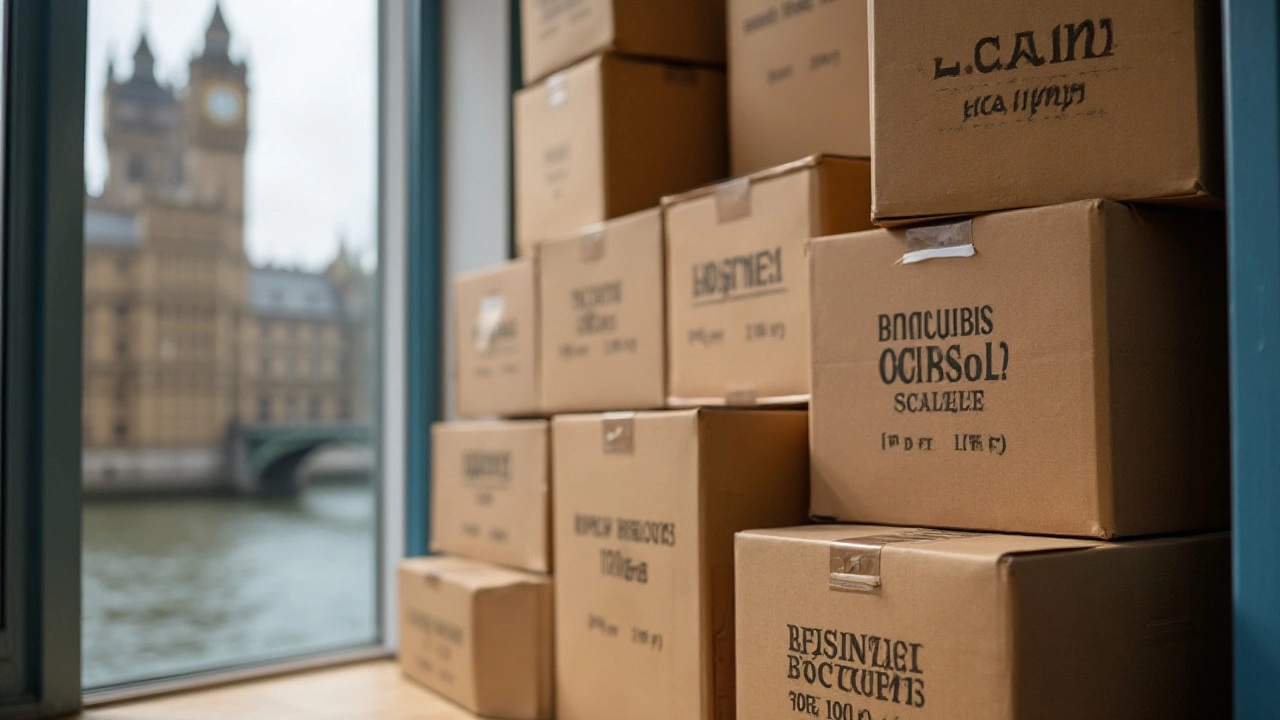
Practical Uses of Storage Units
Many people find themselves drawn to self-storage as a versatile solution to an array of challenges. At its core, a storage unit offers the promise of more space, but its uses extend far beyond merely tucking away extra belongings. On the one hand, individuals are investing in storage units to safeguard seasonal items, such as winter gear and holiday decorations. For those residing in apartments, where closets are scarce, the ability to store bulky items out of sight until needed distinguishes storage units as an invaluable lifeline.
Alongside personal storage, a substantial number of businesses are also exploring renting storage units for professional necessities. Small business owners, particularly those operating from home, can store inventory, equipment, and even client files, keeping their workspaces clutter-free. With real estate prices soaring, employing storage as a mini-warehouse is an economically viable choice. Additionally, for enthusiasts stumbling upon hobbies like vintage car or furniture restoration, these units present an opportunity to keep cherished, space-eager projects progressing devoid of residential interference.
No discussion on storage units is complete without considering their implications during life transitions. Families caught in the process of moving, or those navigating the emotional landscape of downsizing, often turn towards temporary storage solutions. By renting storage units, belongings remain accessible, effectively alleviating the stress of immediate decisions about what to keep or discard. When faced with these turn-of-events, having designated storage can help smooth transitions, easing the overall process.
According to Peter Walsh, an organizing expert, "Life's messiness is sometimes unavoidable, but with the smart use of storage solutions, it becomes manageable."
While some storage solutions emphasize personal and business application, others cater to a broader audience grappling with unexpected life changes. For example, individuals undertaking extensive home renovations rely on storage units for safeguarding furniture and valuables from dust and potential damage. Moreover, storing these pieces provides ample room for contractors to work efficiently without disruption. In such scenarios, renting storage units can support both the homeowner's timeline and the project's efficiency.
Creative uses of storage further include a significant rise in people transforming units into hobby or workspaces. With careful planning and organization, storage units can readily be transformed into art studios or photography darkrooms, supplying creators with a dedicated space for their passion projects. Remote workers, seeking an oasis of quiet amid the hustle and bustle of domestic life, have found innovative ways to fashion small office-like environments.
Lastly, we observe a growing trend in storage units fulfilling unconventional roles. Records show that some individuals use storage facilities as a nurturing home for wine collections, with climate-controlled options that rival professional cellars. While the lines between conventional and creative use blur, one undeniable truth remains: storage allows for flexibility, offering tailored solutions to diverse needs across different life stages and personal pursuits.

Maximizing Value from Storage Rentals
When it comes to renting storage units, efficiency is key to getting the most bang for your buck. Consider the layout and spatial strategy of your chosen storage facility; it's not just about the volume of items, but how they are organized that can make a difference. One effective approach is to categorize and label boxes clearly, which will save time when you're on the hunt for a specific item. With diligent planning and organization, it’s possible to utilize the rented space in a way that resembles a mini-version of a well-stocked and orderly attic.
To unlock additional value, think strategically about placement. Items less frequently accessed can be placed towards the back, while regularly needed ones should be easily reachable. If you’re storing larger belongings such as furniture, think vertically; many businesses offer storage units with significant height, allowing for a stacking strategy that frees up floor space. Employ sturdy shelving units to facilitate this vertical arrangement, which prevents damage and is far safer than precarious piles.
Another crucial element in maximizing value is understanding the potential benefits that might go unnoticed. Look for storage solutions offering climate control if you’re storing sensitive items like electronics, documents, or artwork. This feature may slightly increase costs but is worth the investment when protecting against temperature fluctuations and humidity damage. In many discussions among consumers, it’s pointed out that spending a bit more on climate control can prevent losses much greater than the premium cost itself.
"A little extra monthly expense on climate control can save thousands in damaged goods," says Laura Mier, an expert in personal storage management.
Don't overlook insurance options; verify if your homeowner's insurance covers items stored off-site or if you need additional coverage. This could prove invaluable if anything unforeseen were to occur. It’s a delicate balance between monetary investment and safeguarding your possessions, but in all likelihood, the peace of mind it brings is well worth it.
Lastly, be aware of promotions and discounts offered by storage facilities. New customers often benefit from introductory offers that can significantly reduce expenses in the initial months. Regularly keep in touch with the storage facility for any loyalty rewards or promotions that can shave off some costs without compromising the quality of service. Implementing these tips will help ensure that your self-storage experience is both economical and efficient, allowing you to fully comprehend the perks of renting a storage unit without fearing excessive expenditures.
